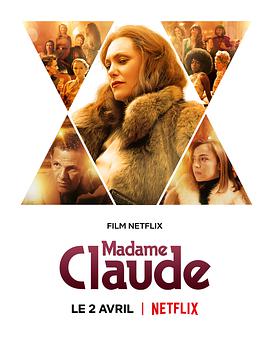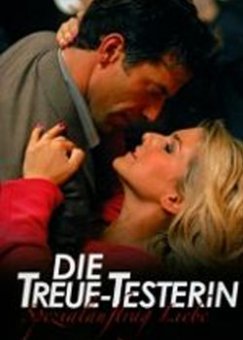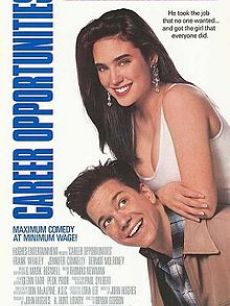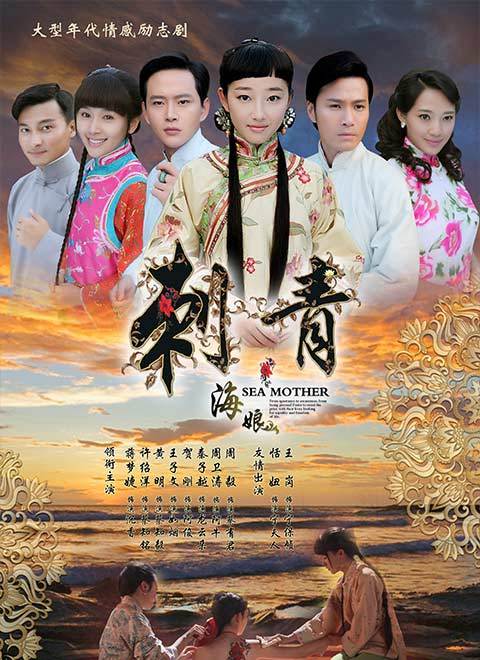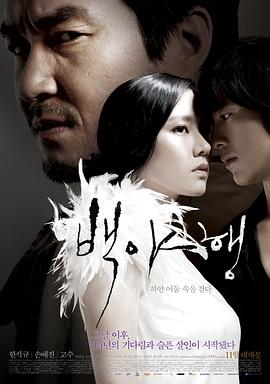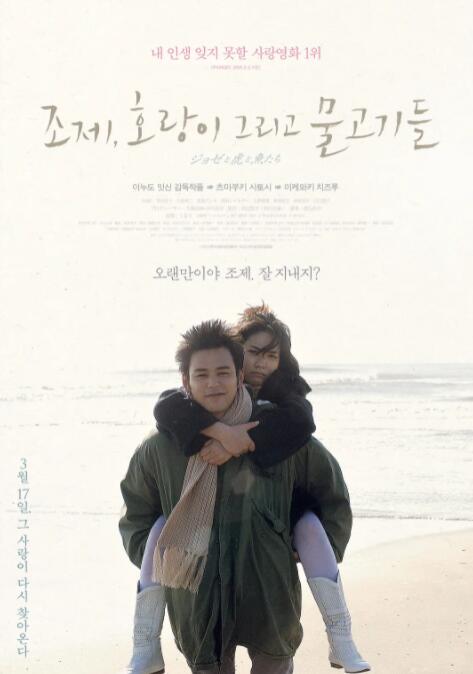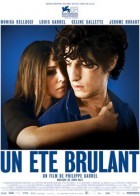- 西瓜云3
- 西瓜云2
- 西瓜云1
- HD中字
- HD
- HD中字
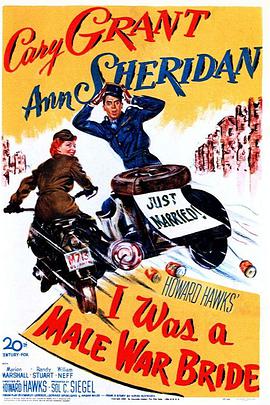
战地新娘
- 主演:
- 加里·格兰特,安·谢里登,MarionMarshall
- 备注:
- 更新HD中字
- 类型:
- 爱情片
- 导演:
- 霍华德·霍克斯
- 年代:
- 1949
- 地区:
- 美国
- 语言:
- 英语
- 更新:
- 2024-02-24 20:00
- 简介:
- 亨利(加里·格兰特饰)是一位英俊的法国军官。在前线,他遇到了前来帮忙的美国陆军妇女队军官凯瑟琳(安·谢里丹饰)。虽然他们之间的交流经常伴随着争吵,但随着时间的推移,他们之间也产生了真挚而美妙的感情。战争结束后,亨利决定跟随凯瑟琳来到美国,结婚并开始幸福的生活,但此时,.....详细
亨利(加里·格兰特饰)是一位英俊的法国军官。在前线,他遇到了前来帮忙的美国陆军妇女队军官凯瑟琳(安·谢里丹饰)。虽然他们之间的交流经常伴随着争吵,但随着时间的推移,他们之间也产生了真挚而美妙的感情。战争结束后,亨利决定跟随凯瑟琳来到美国,结婚并开始幸福的生活,但此时,一个难题摆在了他们面前,那就是亨利无法在美国获得合法居留权。为了解决这个问题,亨利和凯瑟琳想出了一个馊主意,那就是让亨利装扮成女子团的军官,混入美国。让他们没想到的是,这个看似完美的计划在实施过程中遭遇了诸多变故。他们能取得最后的“胜利”吗?
A post-WWII Howard Hawks screwball comedy transpires in the Allied-occupied Germany, Cary Grant plays a French Army Captain Henri Rochard, who is teamed up with American Lieutenant Catherine Gates (Sheridan) in his last mission before bowing out of military service once and for all.
It starts as a typical ill-matched pair reluctantly bundled together (even sharing the same bed one evening), who are constantly at each other’s throatsthrough comedy of errors, more often than not, at Henry’s expense, but, improbable to audience, a budding romantic is bound to emerge from both sides and by the end of their task, they are going to tie the knot. Honestly, the first half is very pleasurable with Grant adopts his tried-and-tested winning formula to juggle goofy, loosey-goosey innocuousness with snit-driven prolixity, meanwhile a proactive Ann Sheridan pulls no punch to prove that as a woman, her Catherine is no lesser to any masculine peer of hers, she can operate a spanking vehicle as competent as fast-tracking their mission.
In truth, it is this conformity-defying, role-swapping gender politics that gingers up the film right out of the box, however, in the second half, when the narrative is mired in overwrought red tapes, only to put the newly weds in the quagmire of a repeatedly deferred marriage consummation, and laboriously plays up the same source of amusement that Henri must apply as a war bride in order to be emigrated to USA as Catherine’s spouse, the film’s allure starts to pall, and its objectionable ethnocentric overtone doesn’t help either. When the plot reaches that mane-clipping, nurse-impersonating climax, it only leaves a first-time viewer gobsmacked, not by the plan’s wits but the whole idiocy which Hawks condones, maxing out Cary Grant’s belabored discomfiture but largely relegating Ann Sheridan on the sideline, an utter betrayal to its promising premise.
Another Golden Age Hollywood crowdpleaser doesn’t come through the test of time, as at one point Henri jests that woman is, au contraire, not the weaker gender to man since they are blessed with more sleep, the joke is in fact on the film and Hawks himself, a blatant tokenism in addressing gender equality, but cranked out inside a masculine hothouse, it is the same old blarney that now borders on offense.
referential films: Hawks’ BALL OF FIRE (1941, 7.5/10), BRINGING UP BABY (1938, 7.4/10), Billy Wilder’s A FOREIGN AFFAIR (1948, 6.8/10),"<>"" && "
A post-WWII Howard Hawks screwball comedy transpires in the Allied-occupied Germany, Cary Grant plays a French Army Captain Henri Rochard, who is teamed up with American Lieutenant Catherine Gates (Sheridan) in his last mission before bowing out of military service once and for all.
It starts as a typical ill-matched pair reluctantly bundled together (even sharing the same bed one evening), who are constantly at each other’s throatsthrough comedy of errors, more often than not, at Henry’s expense, but, improbable to audience, a budding romantic is bound to emerge from both sides and by the end of their task, they are going to tie the knot. Honestly, the first half is very pleasurable with Grant adopts his tried-and-tested winning formula to juggle goofy, loosey-goosey innocuousness with snit-driven prolixity, meanwhile a proactive Ann Sheridan pulls no punch to prove that as a woman, her Catherine is no lesser to any masculine peer of hers, she can operate a spanking vehicle as competent as fast-tracking their mission.
In truth, it is this conformity-defying, role-swapping gender politics that gingers up the film right out of the box, however, in the second half, when the narrative is mired in overwrought red tapes, only to put the newly weds in the quagmire of a repeatedly deferred marriage consummation, and laboriously plays up the same source of amusement that Henri must apply as a war bride in order to be emigrated to USA as Catherine’s spouse, the film’s allure starts to pall, and its objectionable ethnocentric overtone doesn’t help either. When the plot reaches that mane-clipping, nurse-impersonating climax, it only leaves a first-time viewer gobsmacked, not by the plan’s wits but the whole idiocy which Hawks condones, maxing out Cary Grant’s belabored discomfiture but largely relegating Ann Sheridan on the sideline, an utter betrayal to its promising premise.
Another Golden Age Hollywood crowdpleaser doesn’t come through the test of time, as at one point Henri jests that woman is, au contraire, not the weaker gender to man since they are blessed with more sleep, the joke is in fact on the film and Hawks himself, a blatant tokenism in addressing gender equality, but cranked out inside a masculine hothouse, it is the same old blarney that now borders on offense.
referential films: Hawks’ BALL OF FIRE (1941, 7.5/10), BRINGING UP BABY (1938, 7.4/10), Billy Wilder’s A FOREIGN AFFAIR (1948, 6.8/10),"<>"暂时没有网友评论该影片"}
A post-WWII Howard Hawks screwball comedy transpires in the Allied-occupied Germany, Cary Grant plays a French Army Captain Henri Rochard, who is teamed up with American Lieutenant Catherine Gates (Sheridan) in his last mission before bowing out of military service once and for all.
It starts as a typical ill-matched pair reluctantly bundled together (even sharing the same bed one evening), who are constantly at each other’s throatsthrough comedy of errors, more often than not, at Henry’s expense, but, improbable to audience, a budding romantic is bound to emerge from both sides and by the end of their task, they are going to tie the knot. Honestly, the first half is very pleasurable with Grant adopts his tried-and-tested winning formula to juggle goofy, loosey-goosey innocuousness with snit-driven prolixity, meanwhile a proactive Ann Sheridan pulls no punch to prove that as a woman, her Catherine is no lesser to any masculine peer of hers, she can operate a spanking vehicle as competent as fast-tracking their mission.
In truth, it is this conformity-defying, role-swapping gender politics that gingers up the film right out of the box, however, in the second half, when the narrative is mired in overwrought red tapes, only to put the newly weds in the quagmire of a repeatedly deferred marriage consummation, and laboriously plays up the same source of amusement that Henri must apply as a war bride in order to be emigrated to USA as Catherine’s spouse, the film’s allure starts to pall, and its objectionable ethnocentric overtone doesn’t help either. When the plot reaches that mane-clipping, nurse-impersonating climax, it only leaves a first-time viewer gobsmacked, not by the plan’s wits but the whole idiocy which Hawks condones, maxing out Cary Grant’s belabored discomfiture but largely relegating Ann Sheridan on the sideline, an utter betrayal to its promising premise.
Another Golden Age Hollywood crowdpleaser doesn’t come through the test of time, as at one point Henri jests that woman is, au contraire, not the weaker gender to man since they are blessed with more sleep, the joke is in fact on the film and Hawks himself, a blatant tokenism in addressing gender equality, but cranked out inside a masculine hothouse, it is the same old blarney that now borders on offense.
referential films: Hawks’ BALL OF FIRE (1941, 7.5/10), BRINGING UP BABY (1938, 7.4/10), Billy Wilder’s A FOREIGN AFFAIR (1948, 6.8/10),




